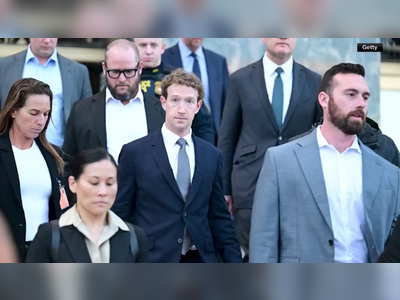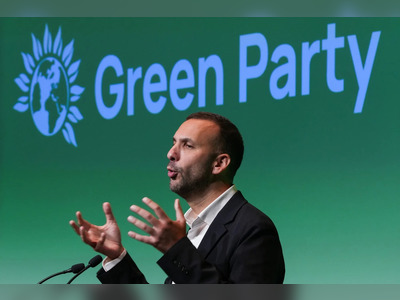
U.S. Government Faces Shutdown as Budget Negotiations falter
A potential government shutdown looms as Senate fails to reach a budget agreement ahead of Friday's deadline.
The United States stands on the brink of a government shutdown as negotiations in the Senate have stalled over a budget proposal supported by the Republican majority and opposed by Democrats.
Unless an agreement is reached by midnight Friday, significant disruptions to federal operations could begin.
The House of Representatives, which is predominantly Republican, had already passed a budget proposal that aims to extend federal funding through September while further deliberations take place regarding a more comprehensive budget for the entire fiscal year.
The proposed budget includes increased defense spending of $6 billion but also outlines $13 billion in cuts to other areas, which Democrats have condemned as drastic and unacceptable.
Democratic leaders argue that these cuts compromise essential services and reflect broader issues within government efficiency.
Notably, they criticize substantial layoffs at federal agencies under the guidance of Elon Musk, which critics assert were undertaken with the approval of former President Donald Trump, recently reinstated in office.
Democrats are particularly concerned that a temporary funding measure limits the Congress's influence over fiscal policy and grants the executive branch excessive discretion in budgetary decisions.
Representative Rosa DeLauro described the proposal as a 'blank check' for Elon Musk, while moderate Senator Mark Warner expressed his intention to vote against the bill, criticizing the idea of granting unchecked power to Trump and Musk.
Despite holding a majority of 53 seats in the Senate, Republicans are expected to require support from several Democrats to reach the 60 votes needed for passage.
Senate Majority Leader Chuck Schumer indicated a potential shift in Democratic support on Thursday.
Initially firm in opposition, Schumer expressed personal concern over the impact of a shutdown, stating that it could grant Trump and Musk unprecedented control over federal services.
During a discussion in the Senate, Schumer warned that a government shutdown would allow the executive branch to classify entire agencies and their personnel as non-essential, leading to widespread furloughs without guarantees of reemployment.
His eventual decision to support the budget proposal raised the likelihood that other Democratic senators might follow suit.
Senator John Fetterman also indicated he might vote for the bill, albeit reluctantly, emphasizing the consequences of a government shutdown on millions of Americans.
On the other side, Trump attributed the potential for shutdown to Democratic leaders, asserting that any ensuing paralysis would be their fault.
As the deadline approaches, the status of government operations and the livelihood of federal workers remain uncertain.
Unless an agreement is reached by midnight Friday, significant disruptions to federal operations could begin.
The House of Representatives, which is predominantly Republican, had already passed a budget proposal that aims to extend federal funding through September while further deliberations take place regarding a more comprehensive budget for the entire fiscal year.
The proposed budget includes increased defense spending of $6 billion but also outlines $13 billion in cuts to other areas, which Democrats have condemned as drastic and unacceptable.
Democratic leaders argue that these cuts compromise essential services and reflect broader issues within government efficiency.
Notably, they criticize substantial layoffs at federal agencies under the guidance of Elon Musk, which critics assert were undertaken with the approval of former President Donald Trump, recently reinstated in office.
Democrats are particularly concerned that a temporary funding measure limits the Congress's influence over fiscal policy and grants the executive branch excessive discretion in budgetary decisions.
Representative Rosa DeLauro described the proposal as a 'blank check' for Elon Musk, while moderate Senator Mark Warner expressed his intention to vote against the bill, criticizing the idea of granting unchecked power to Trump and Musk.
Despite holding a majority of 53 seats in the Senate, Republicans are expected to require support from several Democrats to reach the 60 votes needed for passage.
Senate Majority Leader Chuck Schumer indicated a potential shift in Democratic support on Thursday.
Initially firm in opposition, Schumer expressed personal concern over the impact of a shutdown, stating that it could grant Trump and Musk unprecedented control over federal services.
During a discussion in the Senate, Schumer warned that a government shutdown would allow the executive branch to classify entire agencies and their personnel as non-essential, leading to widespread furloughs without guarantees of reemployment.
His eventual decision to support the budget proposal raised the likelihood that other Democratic senators might follow suit.
Senator John Fetterman also indicated he might vote for the bill, albeit reluctantly, emphasizing the consequences of a government shutdown on millions of Americans.
On the other side, Trump attributed the potential for shutdown to Democratic leaders, asserting that any ensuing paralysis would be their fault.
As the deadline approaches, the status of government operations and the livelihood of federal workers remain uncertain.











